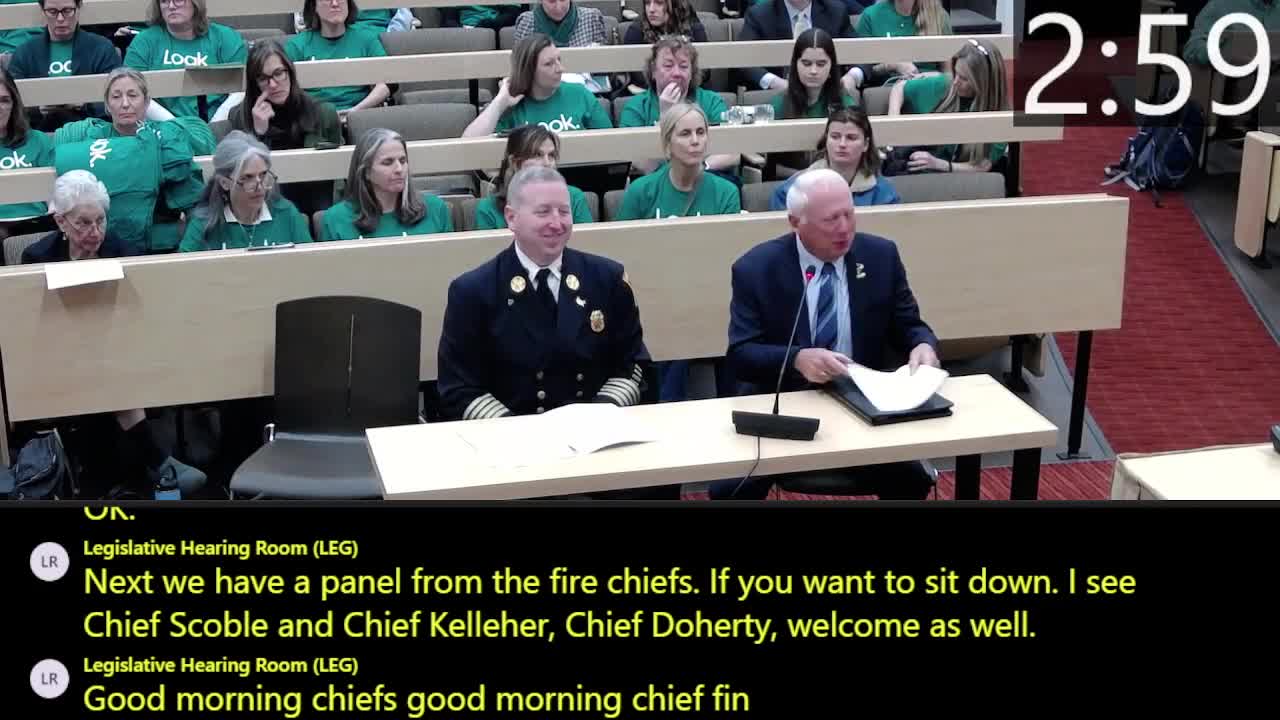Municipal EMS Chiefs, Ambulance Providers Back Bill to Block Surprise Ambulance Bills
Get AI-powered insights, summaries, and transcripts
Subscribe
Summary
Fire chiefs, municipal EMS leaders and ambulance associations told the committee that House Bill 12‑61 and Senate Bill 7‑99 would protect patients from surprise bills after 911 transports and help stabilize municipal and nonprofit EMS finances by requiring insurers to pay providers directly and to honor municipally‑set rates.
Municipal chiefs, nonprofit ambulance operators and Boston Emergency Medical Services officials urged the Joint Committee on Financial Services to advance House Bill 12‑61 and Senate Bill 7‑99, legislation designed to limit surprise bills for emergency ambulance service and ensure more direct, predictable payment flows to providers.
Chiefs from small‑town services described instances where patients received large balance bills because insurers paid the patient rather than the municipal provider or reimbursed an insufficient amount. “We didn't get in the ambulance business thinking we'd make money off insurance companies,” Chief Kelleher of Foxborough said, adding that when insurers pay patients directly it forces providers to “chase” collections or write off large amounts.
Boston EMS Chief Jim Hooley testified the bill balances patient protections and provider sustainability. Boston EMS responds to more than 140,000 clinical incidents annually and depends on both public subsidy and commercial reimbursement. “No one should hesitate to call 911 because they're worried about a bill,” Hooley said. He argued the legislation's municipal rate‑setting process would allow towns to set rates that reflect local operating costs.
Small nonprofit and municipal providers described the operational pressure created by underpayments and inconsistent billing. Rehoboth Ambulance Deputy Director Reuben Fishman said small community services often face low run volumes and aging equipment, and that failing to collect reasonable reimbursement can force write‑offs that jeopardize operations. Richard Raymond of Armstrong Ambulance said the legislation limits a patient's out‑of‑pocket exposure (a $100 cap was cited) and ensures parity when private ambulances serve municipal contracts.
Advocates pointed to other states that have enacted protections for ground ambulance billing and urged a municipal appeals process to the Insurance Commissioner for rate disputes. Senator Michael Moore, who sponsored the Senate companion bill, described the measure as a patient protection: “Ambulances are equipped with medical supplies and personnel trained to respond in a health crisis. Can you imagine an Uber driver responding instead?” Moore said.
Representatives of hospitals and insurance trade groups did not dominate the hearing transcript; proponents emphasized that the bill is focused on 911 emergency transports, not interfacility or scheduled non‑emergency transport. Chiefs and providers said the proposal would make reimbursements timely and reduce patient billing surprises while preserving municipality authority to determine operational needs.
The committee did not vote on the bill at the hearing.
